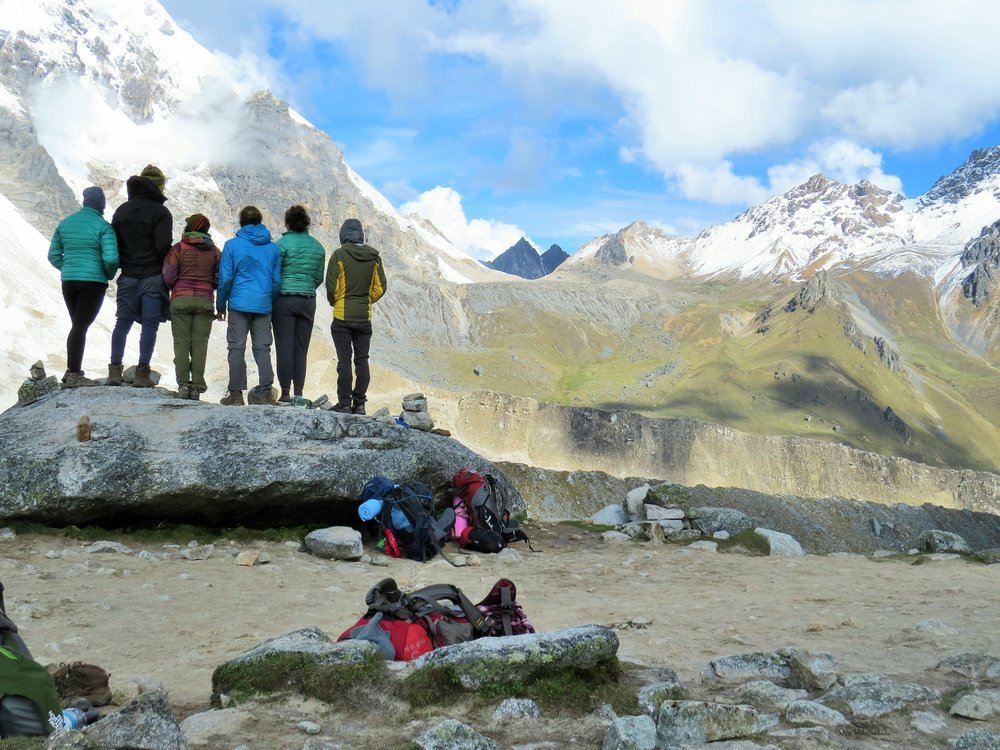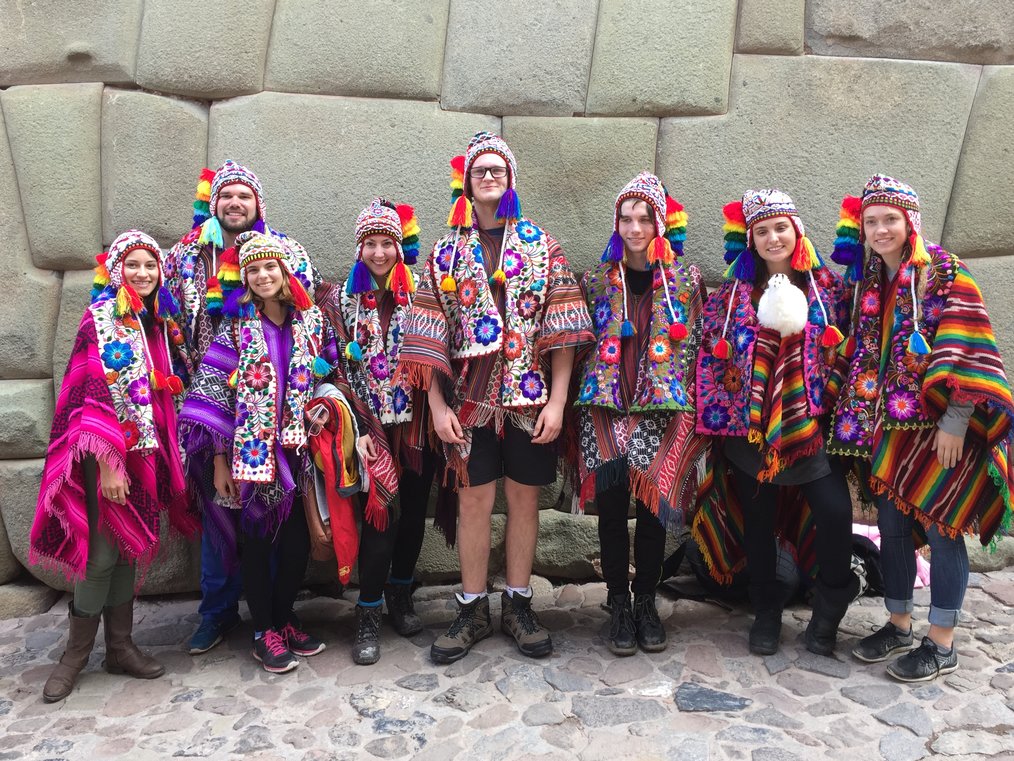Avoid These 14 Mistakes Study Abroad Students Make in Latin America

Studying abroad in Latin America is a great opportunity to learn firsthand about the region's history, culture, and languages and to embrace new people and ideas during your time in whichever country you choose. It’s also a fabulous opportunity to make mistakes.
Regardless of where you choose to study abroad, you will undoubtedly make mistakes, and plenty of them. But the goal should be to make fewer and better mistakes. For students bound for anywhere from Mexico to Argentina, Latin America presents its own unique set of challenges and opportunities to become discouraged, infuriated, homesick, heartbroken, and way too hungover.
Latin America is also the place where, with the right mindset and proper amount of preparation, you can maximize your time dancing in the streets, learning, laughing, cracking jokes in a new language, befriending people from the all sides of the globe, discussing world politics at 2 am in a dazzling cacophony of accents, and falling in love with the place, the people, and the entire experience of living overseas -- all of which is made easier by avoiding common mistakes study abroad students make in Latin America.
1. Thinking All Countries in the Region Are the Same
If you're planning to study in Mexico, know that it's going to be very different than Costa Rica, and Costa Rica is going to be very different from Guatemala in terms of everything from level of economic development to the prominence of indigenous groups and languages.
Avoid putting too much stock in other people's experiences in other countries in Latin America because it won't necessarily have a bearing on your experience.
2. Not Traveling Enough in the Region
One of the mistakes I made when living in Guatemala was not getting out and seeing its neighboring countries. On one hand, it was great because I became very integrated into my host community, but that also meant that I didn't have as much perspective on how Guatemala fit into the greater regional picture and what made it unique from say, Belize or Nicaragua.
3. Traveling Too Much
Other students in Latin America make the opposite mistake: they spend every weekend hopping to a different country so that at the end of their study abroad program, they haven't gotten much depth to their experience in the actual country that hosted them.
Personally, I recommend a 3:1 ratio of weekends spent in-country vs. traveling across borders. This guarantees that you spend no more than 25% of your time elsewhere when you could be investing it in the people and culture immediately around you.
4. Sticking Too Closely to Your Study Abroad Cohort

The people you’re studying abroad with, whether they're from your home university or other universities from across the globe, are probably really interesting and you should certainly take advantage of this new network.
Bonding comes naturally when you’re doing so many new things together: you had orientation together, you take classes together, you party together, you travel together... But with all that togetherness, it doesn’t leave much room to develop friendships with locals or even spend some solo time exploring the country on your own terms.
In my case, the friends I made studying abroad are, 5-8 years later, still some of my closest friends who I regularly catch up with everywhere from New York to Singapore to Mexico City, so I’m glad I kept their involvement in my time abroad in proper balance.
5. Going "Too Local" and Rejecting Your Study Abroad Cohort
This isn't too Latin American specific, but nonetheless important. I almost made this mistake of extremes while studying abroad in China. I was obsessed with learning Mandarin to a “native” level, or as close as I thought I could get. I only wanted to speak Chinese, listen to Chinese music, watch Chinese dramas... I wanted to be Chinese.
Needlessly to say, that was an unattainable goal, but in making my best attempt at it, I almost risked missing out on valuable bonding experiences with the people who would ultimately return to school with me the following semester and occupy a realistically more permanent role in my life.
Remember to strive for local friendships and maximize your time speaking the language, but also leave an appropriate amount of space for the other people you’re abroad with. They’ll be the ones you look back with and go, “Remember that time I tried to become Peruvian?”
6. Being Afraid and Overly Cautious
While it's certainly better to be more careful instead of absolutely reckless, study abroad students in Latin America can sometimes lean towards the over-cautious end of the spectrum, worried or confused ("Is it really that dangerous?") by the reputations of many of the major cities in the region.
Take the normal precautions: don't walk alone at night, don't flash your valuables in the street, don't wear too much jewelry, don't be stupid-drunk in public, etc., but don't let the crime statistics or hear-say unjustly inhibit your experience.
7. Partying Too Wildly
The number one thing you can do to endanger yourself while studying abroad anywhere in the world, but especially in Latin American cities and towns that do have a reputation for opportunistic and even violent crime, is to go out and drink too heavily. Enjoy the nightlife, but stay sensible and always call a reliable taxi to get you home after the party.
Also, for both genders but especially for the ladies, please take care of your drinks so you don't get "roofied" when you're not looking. This is a common tactic for rape or robbery.
8. Not Studying Hard Enough
Along with the danger that drinking too much and partying can too often can present, it can also distract heavily from your studies. There's nothing like learning about U.S. intervention in Guatemala in the 1950s than when you are actually living with Guatemalans. Finding a study abroad program that really immerses you in the local culture while pairing that with educational opportunities is an ideal to strive for.
The relevancy of your coursework to your everyday life will never be greater than when you are abroad, so take advantage of these hands-on learning opportunities.
9. Not Taking Language Study Seriously Enough

If you're new to Spanish, learning the language from scratch can be quite intimidating. Even if you've studied for many years, actually having to use it on a daily basis to do everything from buy toilet paper to create new friendships can be overwhelming to the point of not even wanting to try.
Not to mention if you figure out how to get by with a few basics and then fall back on English, studying the language to a more advanced level can slide down your priority list until your Spanish is actually worse than it was before you arrived in Latin America!
Make sure you devote the time and energy necessary to improving your language skills while you're abroad because you'll never have an easier opportunity to do it than while you're living there.
10. Referring to Yourself as "American"
It’s called Central America (and South America) for a reason. Latin and South Americans can get offended because they, too, live in the Americas and North Americans who monopolize this term and imply that it is somehow only applicable to our part of the hemisphere is considered by many to be unnecessarily arrogant. Try simply saying, "I'm from the United States."
11. Not Understanding the Art of Haggling
Haggling in Latin America, and actually in much of the world, is an art and a sport. Unfortunately, many Americans and Europeans don't handle new experiences with haggling very well, often doing so far too aggressively or unkindly. Here are my basic pointers:
- Don’t ask for the price unless you’re willing to enter the negotiation ring and possibly buy this item.
- Always ask for a discount with a smile. Maintain a smile and a gentle tone throughout the bargaining. This is not a WWE wrestling match.
- Explain nicely that the reduced price mentioned (x) is still too expensive, that you are still a student and don’t have much money but see how beautiful this particular thing is and would really like to purchase it, so would he or she be willing to offer it for (x-50%)? Some back and forth will probably yield a (x-25%) price with gentle persistence.
- Politely walk away if the price is still not in your budget. Walking away with a smile and final compliment to the piece has a 60-70% chance of a final counter-offer.
- Bargaining in Spanish (or even better, the local indigenous language, where applicable) almost guarantees a completely different level of prices.
- Be realistic that spending half an hour haggling over 1 or 2 dollars may not be a good use of your time and that 1 or 2 dollars would probably go to very good use for this particular vendor.
12. Mismanaging Your Finances
Your program was probably expensive enough as it is and maybe you even worked part-time for a few years to be able to afford this experience. While you don’t want to totally skip trips or extras that may cost a little more, what is most common is spending way more than you originally anticipated.
A good way to prevent this is to carefully estimate how much you might spend in those 3, 6, 9 months abroad by speaking with an alumna of your program, and then factor in 25-30% more as a buffer. You also want to remember that while everything is much less expensive than it is at home, buying many cheap things still accumulates over time and can result in an unpleasant surprise when you check your bank statement. (Have something left over to contribute to the next trip I know you’re already planning!)
13. Packing the Wrong Wardrobe
Spend some time researching the climate and culture of the country where you're studying. Speak with previous participants of the program and find out what they were happy they packed and what they wished they had brought. Some people mistakenly think they are moving to the jungle and bring only hiking boots and trekking pants, not realizing that Latin America is much more cosmopolitan than they were imagining at home.
Latin America in general has a widely variable climate, even within countries themselves, so you're best off bringing layers. Make sure you have:
- A few light cardigans
- A rain jacket
- Shorts
- Jeans
- A scarf
- A few nice “going out” outfits
- A pair of leggings for the ladies
- At least one pair of nice shoes
- And yes, don’t forget the hiking boots!
Remember, some places are more conservative than others, so you may want to favor over-the-knee skirts vs. short shorts for those destinations. And always leave the fancy jewelry at home. (You can purchase some local pieces when you inevitably hit the neighborhood market.)
14. Not Packing Enough Toiletries and Medicines
Getting a few months into your study abroad experience and realizing that you’re running low on critical cosmetics or prescriptions that cannot be purchased in Nicaragua or Colombia is simply maddening.
Bring a plentiful supply of things like medicines, eye drops, contact lenses, tampons, and make-up so you won’t run out during your time abroad. Think: would you rather spend your time dancing in salsa class or searching every pharmacy in San Jose for your brand of acne cream?
Above all, the most important mistake to avoid is simply bringing the wrong attitude. Read up on the country before you go, invest in your peers and the locals you befriend, stay open to new ideas and aspects of the culture you may have not expected, and spread an aura of kindness and curiosity.
While some things may get lost in translation, human beings have a way of discerning who is a good person from observances of tone, body language, facial expression, and actions. You’re traveling as an ambassador of your country, your hometown, your university, and yourself, so remember to be good and present the best you have to offer at all times.
